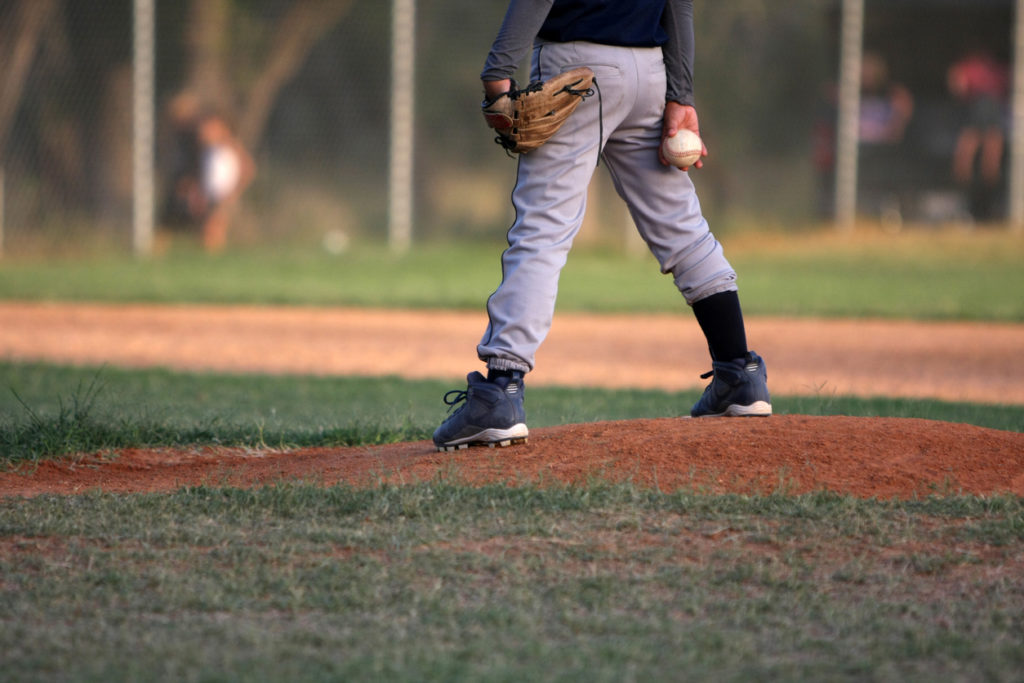Baseball pitchers are a special breed. They have to be able to throw hard and make it look easy.
They have to stand on a mound in front of thousands of people and not crack under the pressure.
And they have to be able to do it over and over again, season after season.
That’s why it’s so important for pitchers to spend the off-seasons developing their craft.

Off-season development is important for all players because it allows them to work on their weaker areas and improve their overall game.
During baseball season, it’s easy for pitchers become “too busy” playing games and practicing to focus on these other areas. And as a result, pitching performance can suffer—big time.
There are a ton of different things that pitchers can do during the off-season to improve your pitching game. Sure, you can work on perfecting your fastball, improving your curveball, or even learn completely new pitches. But pitchers should also focus on improving their strength and conditioning—physically and mentally.
Focusing on important pitching performance metrics like pitch velocity and spin rate is essential, but if you can’t back it up with good control and mobility, you’ll never make it to the big leagues. Strength and movement quality are also crucial to pitching development—and many pitchers, unfortunately, neglect these.

Training your body and mind during the off-season will help you perform your best when it matters. Here are some (but not all) of the areas pitchers can work on during the off-season to become better at their craft:
1. Increase Core Strength
A strong core is essential for any pitcher. It helps generate power and torque while also providing stability and balance. There are a variety of ways to increase core strength, such as using medicine balls, lifting weights, and doing plank and sit-up variations.
Some pitchers (especially younger ones) go overboard with weightlifting, which not only can leave them tired and achy when it’s game time but can lead to injuries as well. In the off-season, focus on quality over quantity when it comes to lifting weights and doing other core-strengthening exercises.
2. Improve Lower Body Strength
Like the core, the lower body plays a major role in generating power and torque. Additionally, strong legs can help a pitcher maintain their velocity throughout a game or outing. There are a variety of ways to improve lower body strength, such as squats, lunges, and calf raises, as well as plyometric exercises.
3. Focus on Flexibility
Flexibility is key for pitchers, as it helps them throw with more velocity and prevent injury. There are a variety of ways to increase flexibility, such as stretching, foam rolling, and using resistance bands. Some pitchers use static stretching, which is holding a stretch for an extended period of time. However, this type of stretching can actually decrease power and velocity. It’s important to focus on dynamic stretching, which is moving in and out of a stretch.

4. Improve Pitch Location
During the off-season, pitchers should focus on improving their pitch location by throwing to a target and working on their mechanics. Even when you don’t have notable flaws in your mechanics, small changes can make a big difference in terms of pitch location. You can always tighten up your pitch locating skills by throwing to a smaller target or narrowing your focus.
And, of course, make sure you’re consistently practicing the craft of locating your pitches so you have the muscle memory to fall back on when it’s game time.
5. Increase Arm Strength
Arm strength is important for pitchers, as it helps them throw with more velocity and maintain their velocity throughout a game or outing. There are a variety of ways to increase arm strength, such as lifting weights, doing resistance band exercises, and throwing medicine balls. As with the core, some pitchers make the mistake of going too heavy when lifting weights.
Weighted balls are sometimes used for pitching development, but should be thrown under the supervision of a coach or trainer as they can be dangerous—for both the pitcher and the catcher. Contrary to popular belief, weighted balls are heavy enough to do a lot of damage. So, if you’re going to use them, make sure it’s under the guidance of someone who knows what they’re doing. A baseball pitching program is a great way to make sure you’re improving your game efficiently and effectively, while also avoiding injuries.
6. Develop (More) Mental Toughness
Mental toughness is important for any athlete, but it’s especially important for pitchers. Pitchers need to be able to mentally rebound from bad outings or performances. There are a variety of ways to develop mental toughness, such as visualization, positive self-talk, and breathing exercises—as well as many more beyond the scope of this article. But the most important thing is to find what works for you and to practice it regularly.
Pitchers who are able to focus on the present moment and let go of their mistakes are more likely to find success on the mound. It’s also important to have a short memory as a pitcher—you can’t dwell on your mistakes or they will continue to haunt you. Learning how to mentally rebound is an essential skill for any baseball player development regardless of position, but pitchers need to be especially mindful of it given the nature of the game.

Final Thoughts
Yeah, the off-season can be long and tedious. But it’s an opportunity to focus on your development. So use this time wisely—you’ll be glad you did when the season rolls around and you’re pitching better than ever before.
Off-season development is essential for any pitcher who wants to find success on the mound. Developing pitching skills in the off-season requires dedication and hard work, but the rewards are worth it.
By following these tips and focusing on pitching craft during the off-season, pitchers can take their game to the next level and get more strikes, more outs, and more wins.


